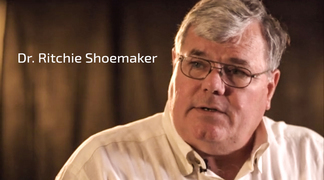Shoemaker Certified Physician Profile
Mary Ackerley, M.D. , M.D.(H)
By Patti Stilley Schmidt
SurvivingMold.com’s Health Coach
In some ways, Mary Ackerley M.D. always walked to the beat of a different drummer.
After doing her undergraduate studies at Harvard University, she worked at NIH for a year under Dr. Frederick Goodwin, Clinical Professor of Psychiatry at the George Washington University Medical Center and host of the award-winning radio show The Infinite Mind. Her work with Goodwin, who specializes in bipolar disorder and recurrent depression, came at the “beginning of biological psychiatry, where we began to gain an understanding of the biochemistry of neurotransmitters. It was a time of great hope when many of us believed this new understanding would solve everything,” she recalls.
She was graduated summa cum laude, and decided to attend medical school at the University of Maryland. “It was a great place. People there were concerned about patient care and I was able to get a lot of experience,” she said.
She finished medical school early and was accepted for a residency at Johns Hopkins University. Her thesis on faith healers and the placebo effect* was considered outlandish by some. “I’ve always thought a little differently than everyone,” she says today with a laugh. “But in medical school, if you think outside the box, you learn to keep it to yourself.”
Luckily, her thesis advisor was pioneering neuroscientist Richard J. Davidson, author of The Emotional Life of Your Brain and a pioneer in researching the effects of meditation. A daily meditator and longtime friend of the 14th Dalai Lama, some of his work involves research on the brain as it relates to meditation.
Always interested in spirituality, she instinctively sought out and learned about alternative ways of thinking and seeing, especially about medicine. She finished her residency, opened a private practice and became an associate professor at Johns Hopkins.
In 1990, during a period of transition, Ackerley needed a break and took a trip to Tibet. “I wanted a change of pace,” she remembers. “And Tibet was a game-changing experience for me.” She became curious about the Sakya school of Tibetan Buddhism, a sect that stresses equality for men and women. While there, she learned about energy and Chinese medicine, nutrition, and worked with Tibetan physicians.
After her journey to the East, she moved to upstate New York, near a Tibetan monastery. It was there she met Alex, her husband. “It must have been karma,” she says now, laughing.
Early on, Alex was attracted to the gifts of herbal healing. He lived and studied in India with a doctor of homeopathy, and became a nutritionist. He is certified in kinesiology, which he combines with emotional healing techniques and biomagnetic therapy. These techniques have assisted Dr. Ackerley by helping her patients release emotional knots.
Her practice today
“I was always comfortable with other ways of thinking,” she says. “Maybe that’s why once I was aware of Dr. Shoemaker’s work, I had to learn more. Its being different didn’t scare me.”
Dr. Ackerley’s practice today is “largely mold patients.” The cases are complex and often long-standing. They’ve often seen many physicians and specialists, but none have been able to help much. Some come as a last resort, believing they might be “nuts after all.”
As a psychiatrist, she’d treated fatigue and depression, but found early on that “many of those who carried psychiatric diagnoses actually had mold exposures.” She’s glad to explain how mold can cause psychiatric symptoms like anxiety and depression, and how treating it can lead to substantial improvement.
She likes working with patients who are empowered. “The people who get well are the ones who take their treatment into their own hands,” she says. Many of her patients fall into that camp. “They really want to get better.”
There is hope, though, she says, even for patients with long-standing, complex disease processes at work. “These problems and these patients aren’t going away. And the research continues. More work on inflammation is being published in the psychiatric literature all the time.”
To contact Dr. Ackerley, go to http://www.mypassion4health.com/ or call 520-299-5694.
*Ackerley, M. B. (1978). Psychological and Social Factors in Illness: A Study on the Placebo Effect (Doctoral dissertation, Harvard University).
Featured Resources for Shoemaker Protocol
Better than Resolutions
Every year when the New Year rolls around, people begin to make goals and resolutions to be more health-focused, especially after a busy, festive holiday season.
No luck finding a Shoemaker Certified Practitioner? Here are some solutions:
The top inquiries to our site continue to be, ‘”Is there a Shoemaker Certified Practitioner near me? And, “Is there one who also takes my insurance?” While we don’t have practitioners in every region as of yet, many certified practitioners are set...
Online Proficiency Partners Course
Join a life-changing team helping patients with CIRS recover and thrive.
2016 Third Annual Conference Irvine, CA - Dale Bredesen, MD - Alzheimer's and CIRS
Dr. Bredesen has made GROUND BREAKING progress in reversing the affects of ALZHEIMER'S Disease. In this brief video, you can see the highlights of his speech, tomorrow he will go on NBC's Today show to reveal this massive find. Get more info, the details ...
Review: State of the Art in Mold, Water Damaged Buildings and CIRS Conference. Phoenix, AZ
November 12-15, 2015 By Jonathan Lee Wright I have just returned from four days of attendance at the State of the Art in Mold, Water Damaged Buildings and CIRS Conference in Phoenix, a symposium organized by groundbreaking medical research practition...
.jpg)

